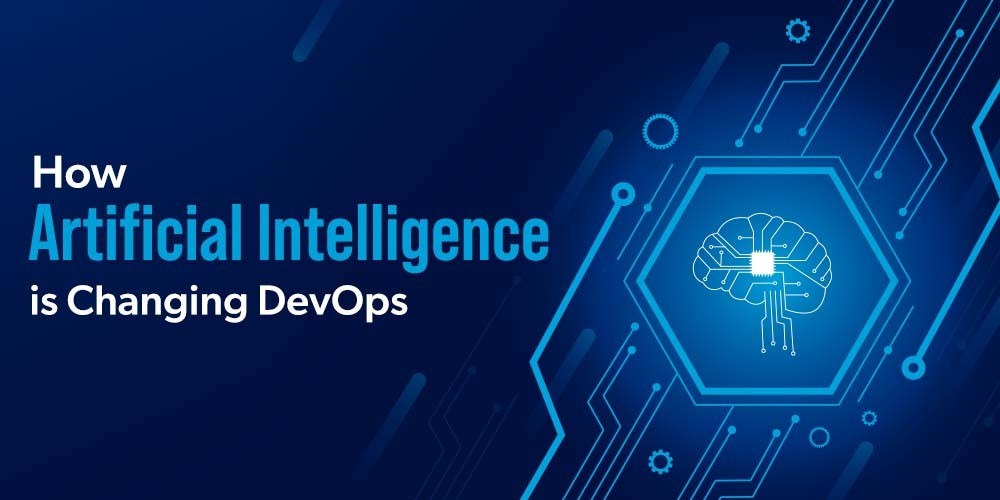Artificial intelligence and DevOps. What the future looks like.
Artificial intelligence has brought the world of technology to a new level of automation. Nearly all specializations today require machine learning interventions to develop artificial intelligence technologies that help companies do more with less time and resources. However, some organizations are wondering if AI driving is a good investment. For DevOps, the answer is an unequivocal yes.
Artificial Intelligence can improve DevOps practices to accelerate the pace of software release, helping companies achieve continuous delivery. This allows programmers to release software about 10 times faster and allows programs to be tested before they are released. Artificial Intelligence has also improved the DevOps culture, enabling more efficient decision making, better code quality, and automation of operations. Next, let’s dive into the impact of AI on DevOps.
Monitoring and managing all data created in DevOps environments is highly complex, making it difficult for teams to efficiently collect and use data. In addition, the amount of data a given team can retrieve can reach exabytes, so artificial intelligence tools provide the necessary assistance. After all, manually analyzing huge datasets would take too long for humans to satisfy the needs of today’s business. What’s more, polls show that 57% of US developers have less than five years of experience.
For this reason, software testing must be an ongoing and thorough process to verify and re-verify that no vulnerabilities affect the security of the code. AI can integrate manual validation to improve the speed and accuracy of finding bugs.
However, integrating AI into DevOps functionality does not mean that developers are not needed, even if their roles have changed significantly. Backend developers are involved in development and operations while performing operations and testing, especially in relation to cloud infrastructure and cybersecurity. And front-end developers will always be needed to provide technical support for creative design that no one can do better than humans. In today’s fast-paced world, developers need to release code faster than ever before, while operating teams keep existing systems running with minimal disruption.
When integrating AI, this partnership is easier because it improves the efficiency of collaboration between development and operations teams. The artificial intelligence system provides a unified view of systems and anomalies across complex DevOps chains. Artificial intelligence integrates human activities into DevOps to make things more efficient and safer.
Because of the complexity of DevOps requirements, people were looking for a more automated solution that could help people improve productivity and speed up processes. Plus, you can expect to pay around $ 60 an hour to an experienced US server-side developer. This means that using AI to automate the dirty work can save a lot as well.
Distributed Denial of Service (DDoS) and related attacks have become a widespread security threat to websites and online services these days. Artificial intelligence tools are capable of identifying and remediating these threats.
In addition, artificial intelligence can help teams that are still using traditional DevOps transition to DevSecOps. AI security tools detect anomalies and threats based on real-time data and analysis of past behavior. Therefore, artificial intelligence has played a vital role in protecting many organizations, including schools and universities, from cyber attacks by integrating human security experts.
The sheer volume of data that needs to be collected, organized, and analyzed in DevOps exceeds human capabilities. However, AI solved this problem by collecting data from multiple sources and organizing it for analysis. This greatly improves and speeds up the DevOps process. Software development and testing has accelerated thanks to AI integration.
As a result, the various types of tests used by DevOps, such as custom acceptance tests, regression tests, and functional tests, are more efficient and accurate than ever. These tests produce large amounts of data that would take centuries for humans to identify and collect. With the help of artificial intelligence, identifying coding patterns and methods that lead to errors and vulnerabilities has become fast and convenient. This data can then be used by the DevOps team to improve efficiency and improve development practices.
DevOps teams sometimes find it difficult to react and respond to alerts when responding to incidents. Without priority tags attached, it becomes difficult for a team to effectively prioritize incidents. A more efficient and comprehensive warning system should be able to instantly detect defects and flag the most serious ones as the most important. In this way, the team can approach problems more systematically and solve them without error.
AI can help prioritize alert responses based on certain factors, including alert intensity, alert source, and past behavior. This leads to effective management in situations where systems are overwhelmed with massive amounts of data and an immediate response is required. AI-powered alerting is especially important for DevOps security, so it is a key AI advantage in this discipline. DevOps teams are often burdened with management tasks in a rules-based environment, which reduces their time spent in more innovative and creative areas.
When AI takes over, these tasks become autonomous, increasing efficiency and reducing human intervention. Artificial intelligence systems can work on their own, freeing people from these tasks to focus on innovation and creativity. Thus, artificial intelligence has turned DevOps into self-governing systems that no longer require human rule-based analytics management. This should address the complexity of the exploration that the DevOps teams have struggled to accomplish and allow for faster adoption.
The main function of DevOps is to use monitoring tools to collect feedback at each stage of operations, and then use them to improve software development and distribution processes. Performance monitoring tools use machine learning to collect information such as performance matrices, log files, data tables, and more.
The feedback collected is then used to proactively track potential problems and provide suggestions for solutions. The application is then modified using these tips to make it more efficient.
Artificial intelligence improves the efficiency of DevOps functions. However, it is an exaggeration to say that he has the upper hand, because there are still many places where human intervention is needed. The idea behind AI integration is not to change the player, but to change the game.
While AI helps humans accelerate software development, developers continue to lead many aspects of the craft. But it also seems impossible to run DevOps features at the required pace without AI integration. So, if you want to release software at a pace that keeps up with technology trends, you need to incorporate artificial intelligence into your DevOps functions.



